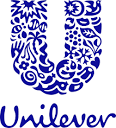
Unilever
Corporate Bias Rating
Expand Summary
Risk Level:
Summary:
*Note:* Unilever is the parent company of over 400 brands. This rating refers to Unilever's policies, practices, and funding. When one of its brands drastically differs from the company in any of these areas, particularly if the brand has a distinct corporate governance policy, we give that brand a separate rating. Unilever is a defendant in two lawsuits for unlawful firings: one in Israel from the maker & distributor of Ben & Jerry's Ice Cream and another from a former U.S. employee fired for observing Rosh Hashanah. By complying with the HRC’s controversial demands, Unilever increases the risk of dividing employees, alienating customers and harming shareholders. The company covers transgender-related medical costs for its employees and their children and provides specific sexual orientation and gender identity-based benefits. It also uses sex and gender ideology criteria in employee recruitment, vendor selection, marketing, and philanthropic support. Unilever forces employees to undergo multiple ideological trainings and uses its reputation, corporate funds, and political influence to support controversial sex and gender ideologies, organizations, and legislation. Unilever is part of the Global Alliance for Responsible Media. America First Legal filed a letter with the EEOC requesting a civil rights investigation into Unilever over discriminatory practices in hiring. The company frequently uses its reputation and corporate dollars to promote LGBT ideology and organizations. The company has consistently opposed election reform. Unilever donated to Planned Parenthood and pledged $7 million to organizations working for social justice, though it is unclear who received support. Unilever provides a benefits package for employees which covers travel/lodging costs for an abortion and transgender medical procedures for covered employees and dependents, including children. The company opposed various state and local legislation intended to protect parental rights, girls’ sports, bathroom facilities, and gendered spaces. Unilever is a member of the "Don't Ban Equality" business coalition. The company denounced various states’ legislative efforts to protect election integrity and security. Unilever co-signed a letter to law firms demanding an improvement in diversity in order to retain business with the company. For these reasons, Unilever receives a High Risk rating.
In the News
Expand Summary